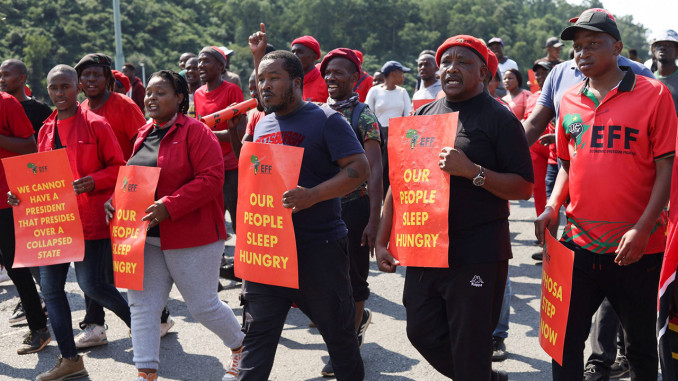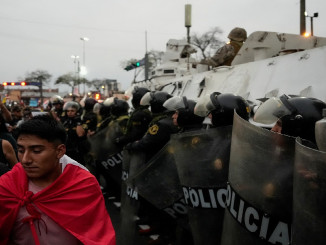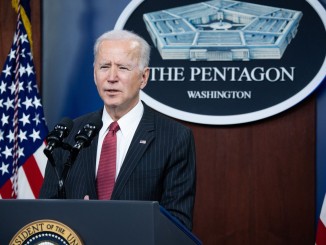
Tired of rampant corruption, energy shortages, poor standards of living, and now a partial government bailout of an ineffective energy company, many South Africans are protesting all these problems and demanding that their President, Cyril Ramaphosa, resign.
The protests occurred Monday in the capital Johannesburg and dozens of other cities, and were organized by the Economic Freedom Fighters, which has its base among poor, working-class, Black South Africans. Although it was not as large or disruptive as organizers had hoped – they had originally hoped for a “national shutdown” – at least tens of thousands joined the marches to protest many problems facing South Africans. The government, controlled by the African National Congress, or ANC, put police out in force, and more than 500 were arrested.
While the protests did not shut down the nation and may or may not indicate the beginning of a larger upsurge, they are a sign that large numbers of South Africans have lost faith in their political and business leaders. Unemployment in South Africa has for years hovered just above 30%, and Covid-19 only made the situation worse. Electric shortages and occasional blackouts have been a problem for more than a decade, but rolling blackouts have gotten worse and worse, leaving many without power for 10 hours per day. The energy company, owned by the state, but underfunded and used to subsidize other business during the apartheid era, is on the verge of collapse. The government agreed to take on half the company’s debt, which infuriated the population and drove them into the streets to protest. All of this is on top of other simmering protests and strikes protesting low wages and refusal to bargain fairly with union workers. And the ANC, once a symbol of hope for all Black South Africans in the struggle to end apartheid, has shown itself to be a corrupt tool of the capitalists, as were the white apartheid governments that preceded it.
Whatever these protests may mean for the future of South Africa, as people organize and build to demand change, we will see new possibilities come into view.




